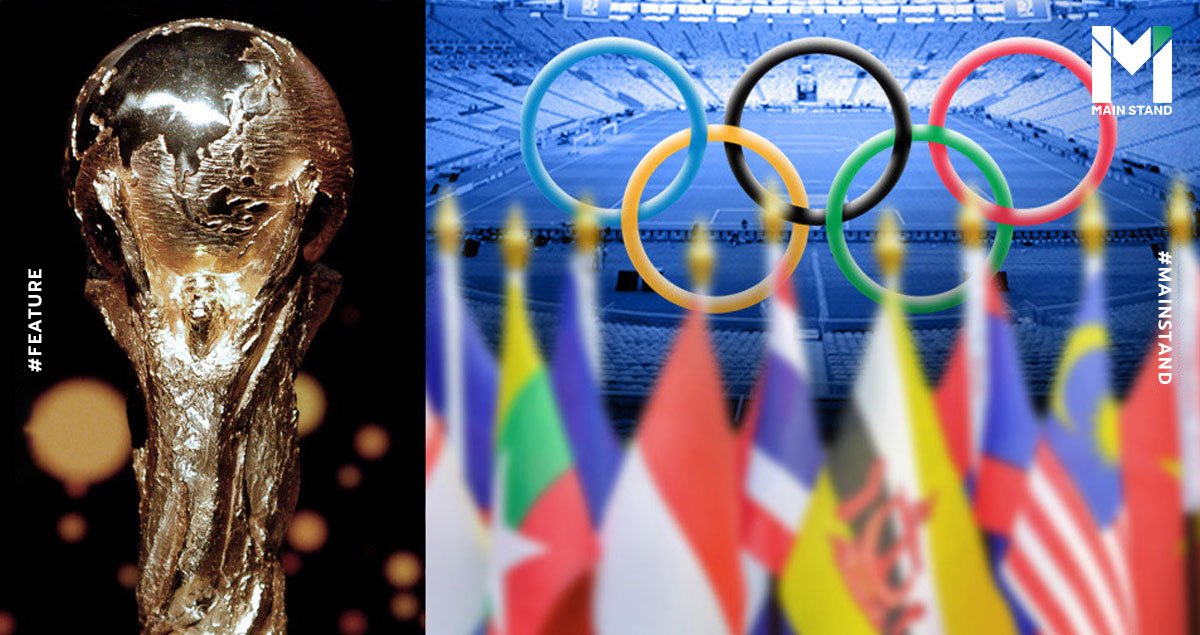
Thailand, Singapore, Vietnam, Malaysia, and Indonesia have officially declared their intention to launch a joint ASEAN bid for hosting the 2034 FIFA World Cup.
Meanwhile, the prospect of urging Thailand to bid for the 2036 Olympics came up recently in Bangkok’s gubernatorial election.
Many might see the idea of hosting a major sports tournament as a way to manifest the country’s potential, boost the domestic economy and modernize national infrastructure.
However, many of the countries that have hosted major tournaments in the past go on to suffer from debt and economic downturns. In the hope of success, what is returned to the hosts is, instead, failure.
What causes these financial disasters and abandoned construction projects, which now sit as empty monuments? Main Stand will clarify the matter.
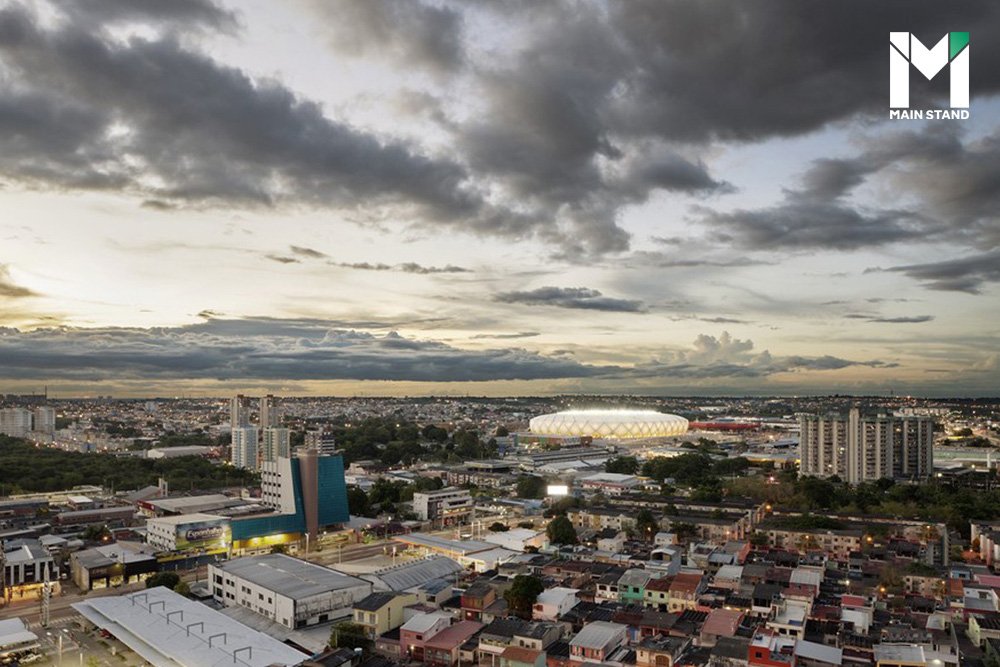
Skyrocketing costs
Brazil considered itself doubly lucky when it was chosen to host both the World Cup in 2014 and the Olympics Games in 2016, resulting in considerable growth in 2010, with a 7% increase in Gross Domestic Product (GDP). The nation was expected to be a global superpower over time. Therefore, hosting two of the world’s big tournaments was a way to materialize this potential.
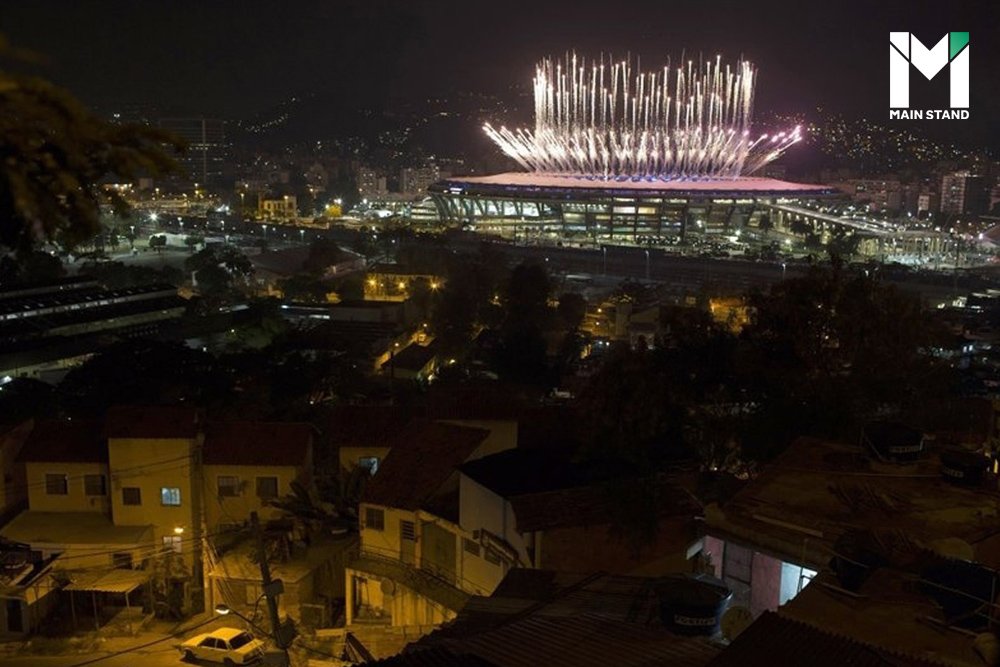
For the World Cup, Brazil dumped approximately $18 billion into preparation, while the Olympics Games’ budget, which was originally set at $10 billion, ended up ballooning to $15 billion by the time the tournament had ended.
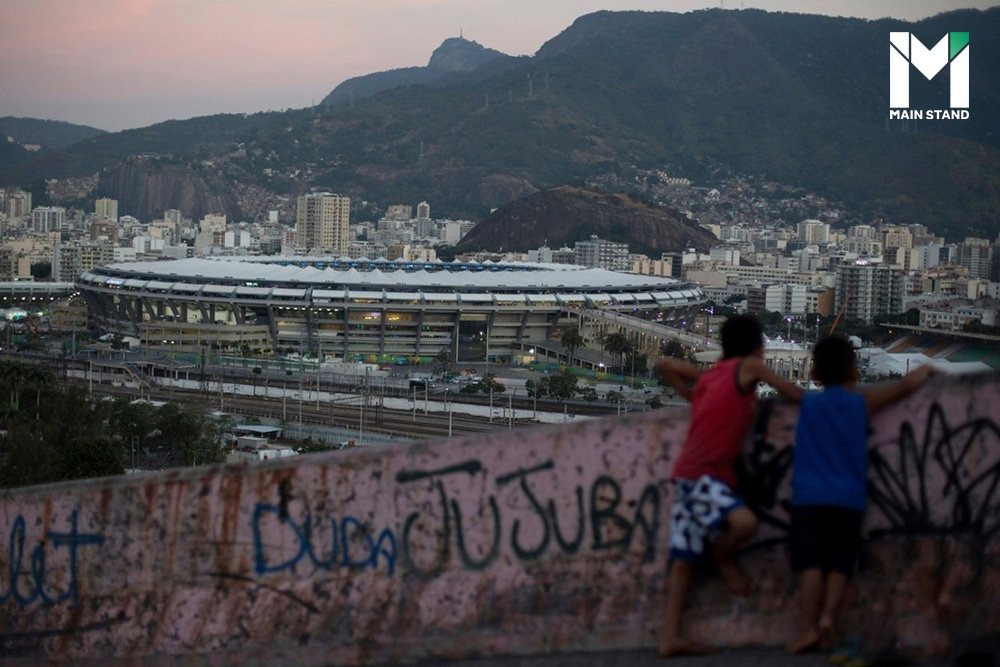
This kind of budgeting disaster is commonplace across time and location. For the 1976 Summer Olympics, in Montreal, Canada, the city’s mayor set the budget at $125 million and was confident they would work within the funds.
When the Olympics in Canada was over, the final tally of the costs of the investment in constructing ‘the Big O’, not to mention other magnificent stadiums, was 13 times higher than expected, skyrocketing to $1.6 billion. This left Montreal in huge debt, which took the city 30 years to retire.
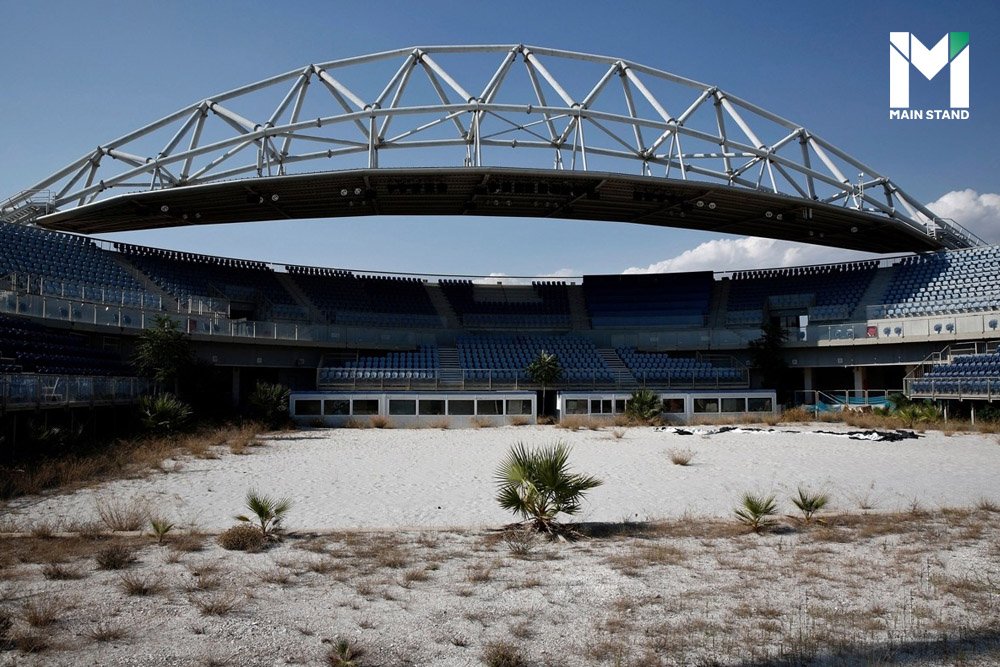
The money used for the Olympics Games 2004, Athens, Greece, was also unreasonably high, costing approximately $11 billion, which was 5% of the entire year’s GDP. Since then, the country has suffered from a stagnant economy to downright terrible.
Limited economic benefits
Many countries long to host big tournaments in the hope of boosting their economy. It is true that tourism significantly benefits from hosting the games; local shop owners, for example, are often overjoyed at the prospect of increased income before and during the tournament.
However, it’s what happens after that is the problem. In Brazil, the domestic economic situation after the World Cup and Olympics was not as promising as expected and was plagued by fraud and corruption.
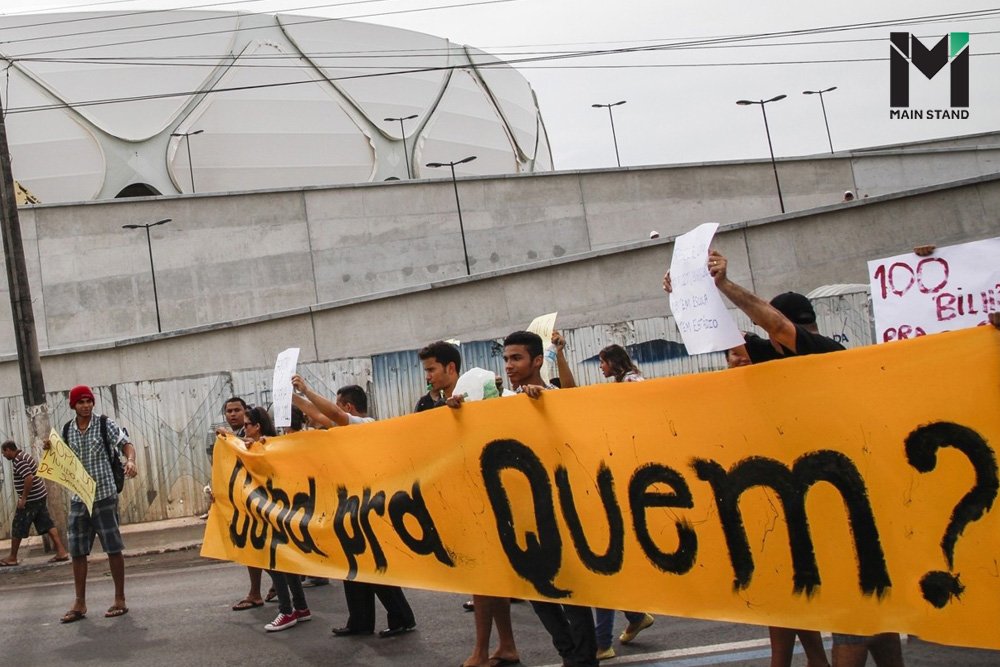
Furthermore, Victor Matheson, a sports economist, stated that while the World Cup brings a huge amount of circulating funds during the tournament, most of the benefits don’t go to the host country’s local businesses but to FIFA’s sponsors. McDonald’s, Coca-Cola, and Budweiser dominate the industry, not allowing local brands to approach visitors. Likewise, those who benefit from hotels and car rentals are usually the country’s top business people.
Another example is the 1998 Winter Olympics in Nagano, Japan. Nagano strongly believed that hosting the Winter Olympics would help boost the tourism and ski industry.
The Shinkansen bullet train line was built to connect Japan’s capital Tokyo with Nagano to cut the traveling time in half. While some ski resorts could generate some revenue, the five stadiums constructed for the event were left unused but required considerable maintenance costs.
Similarly, former FIFA president Sepp Blatter said the World Cup would boost South Africa’s economy. However, when the World Cup 2010 in South Africa ended, the hosts had to bear a $4.1 billion debt from the construction of stadiums, hotels, and infrastructure to welcome the World Cup. This was because ticket revenues were insufficient to make the projects financially viable.
Wasted infrastructure
Brazil built a number of new stadiums to welcome the World Cup and Olympics, yet many of the stadiums were not used efficiently. For example, the 50,000-seat stadium in Manaus did little to contribute to the surrounding area, as the city has no football clubs in the Brazilian top division.
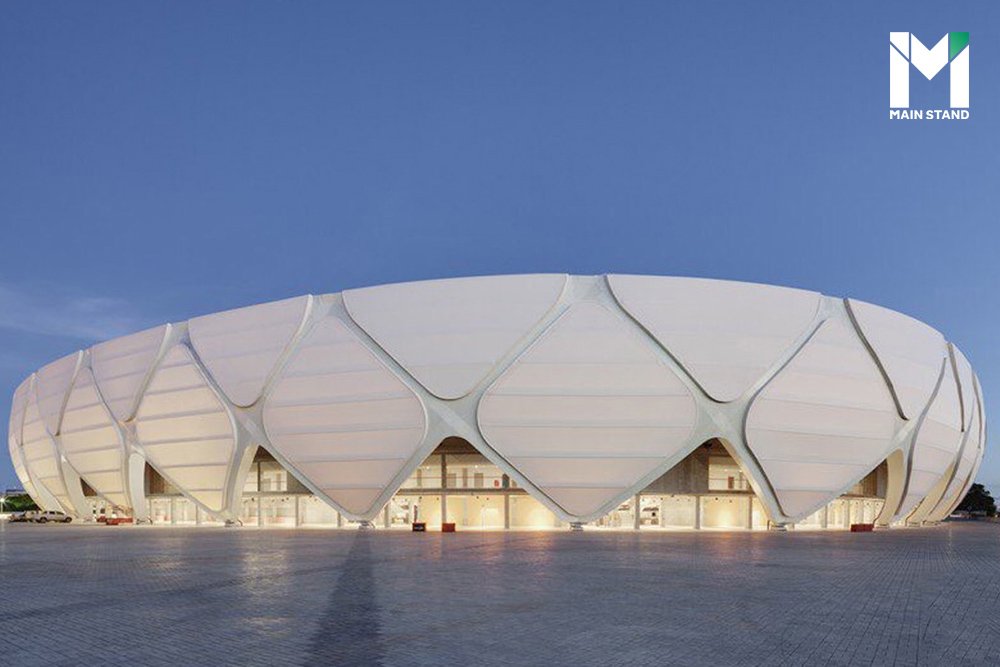
A 20-million-dollar golf course, as well as stadiums in Deodoro, were closed because no companies were willing to take on the responsibility of supervising the stadiums. On top of that, no one was footing the million-dollar electricity bill, resulting in the Brazilian electricity authority cutting off the power in the stadium’s area and surrounding vicinity. Similarly, the “Rio Games” committee had to bear a cost of $40 million after the tournament.
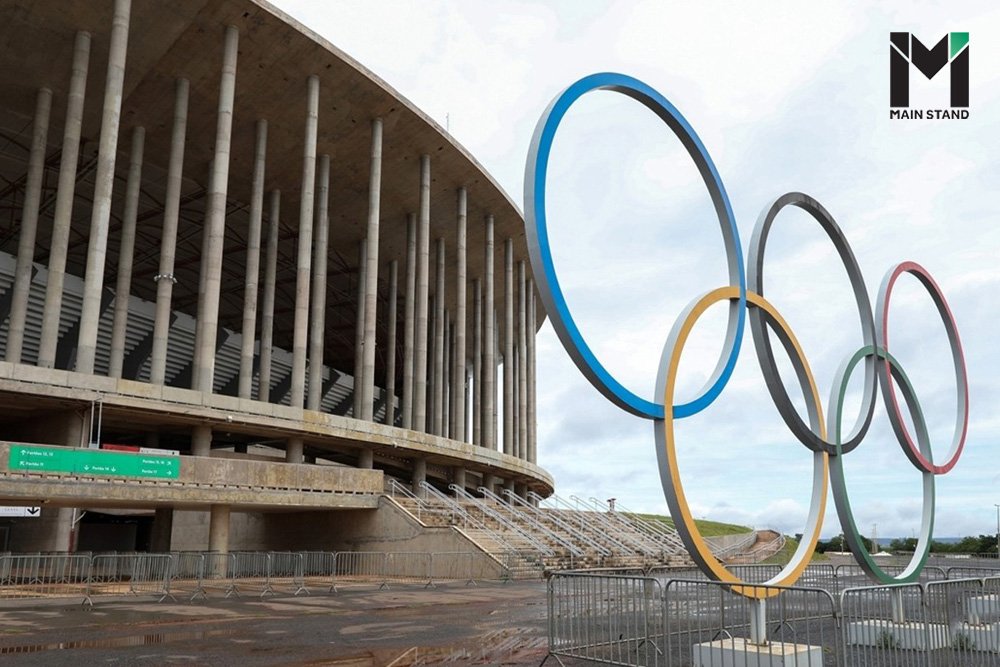
It is no different from the Big O in Montreal, Canada, which professional teams used from time to time, but was never settled in permanently. The stadium was underused and eventually abandoned for 40 years. In 2017, the stadium was ultimately used not as a sports venue but as a shelter for refugees sent by the United States.
“A form of robbery”
Millions of Brazilians were against the idea of hosting a mega sports event, which they felt to be a waste of huge amounts of money. Furthermore, there were many protests against the government in the tournaments.
People thought these resources ought to be used to alleviate poverty and develop the country’s welfare, which ignited riots and protests.
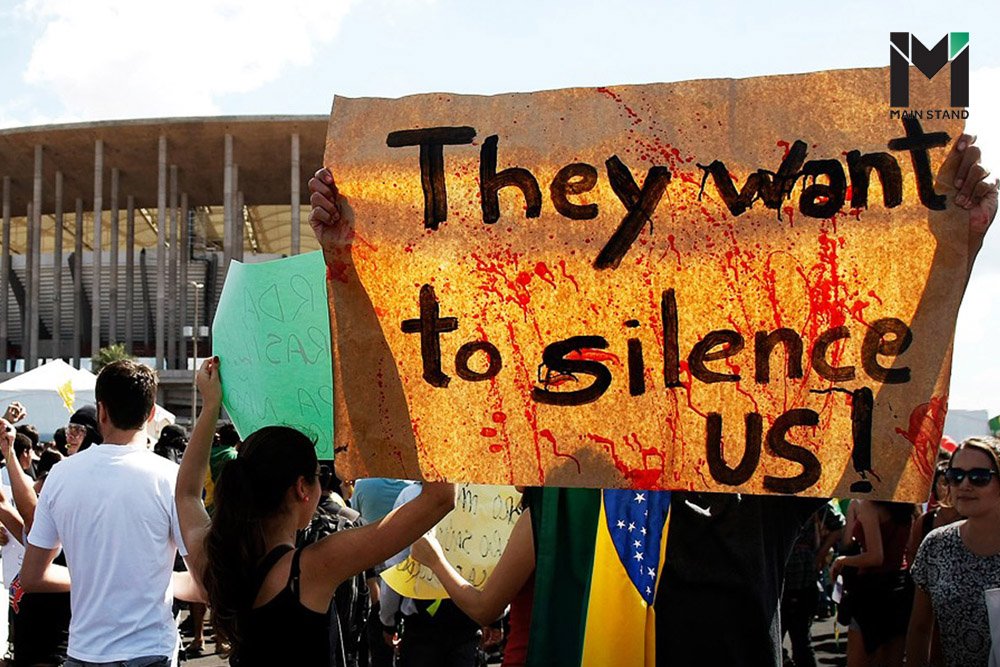
In Rio de Janeiro, people rallied with signs that read “Go home, FIFA” and “The World Cup of Corruption.”
One protester, Denis Adriana Ferreira, said that “the World Cup took money away from the health and education of Brazilians. The homeless were forced to live on the streets. Here is no longer where Brazilians belong. It’s served for tourists instead.”
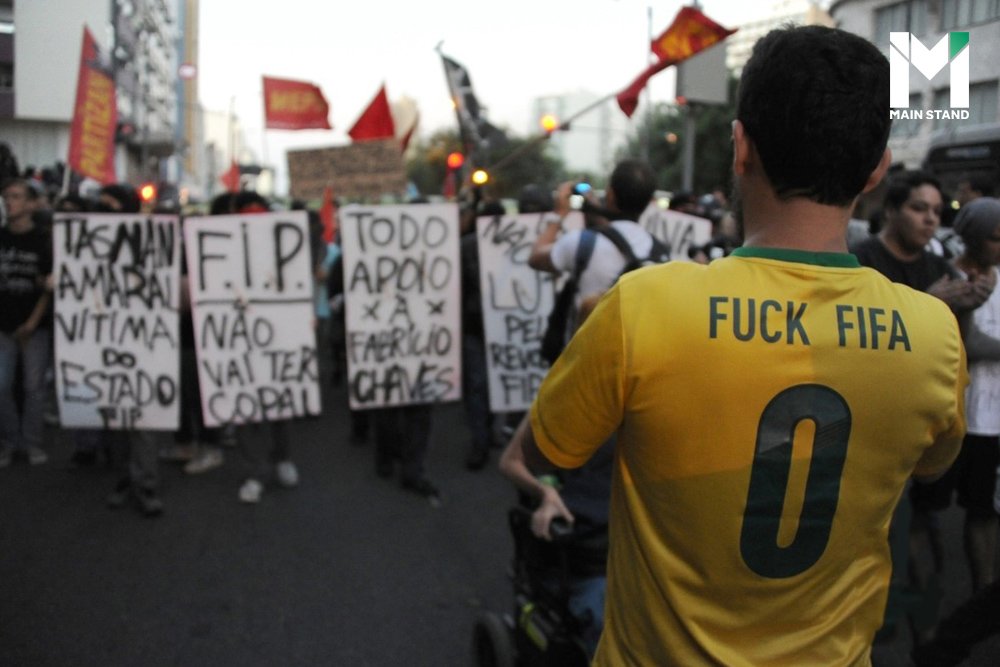
Some Brazilians were so infuriated by the government and FIFA that they chose not to support their national team for the world’s biggest tournament. André de Magalhães Gomez, a Brazilian protester, wore an Argentine national team shirt, Brazil’s all-time rival, on the football field and joined a protest, saying, “Brazil should not host the World Cup. Why did FIFA select the most corrupt country to hold the World Cup?”
Since huge debts and deficits in some host countries were revealed, fewer countries have been interested in hosting the 2022 Winter Olympics. Initially, seven cities expressed their interest in holding the event: Almaty (Kazakhstan), Beijing (China), Krakow (Poland), Stockholm (Sweden), Munich (Germany), Davos, and St. Moritz (Switzerland).
However, a referendum revealed that many locals disagreed with the country’s decision to host the tournament. Therefore, five countries dropped out, with only two candidate cities left, Almaty and Beijing. Ultimately, the IOC chose China’s capital to host the sports event because it believed in the country’s potential.
Such a matter has been having an impact on the 2026 Winter Olympics bid as well. Cities such as Sapporo (Japan), Graz (Austria), Sion (Switzerland), and Calgary (Canada), which initially expressed their interest in holding the tournament, have dropped out of the bidding process, following polls that indicated 56% of respondents disagree with their city’s hosting of the event. Therefore, the only candidates were Stockholm (Sweden) and Milan/Cortina d'Ampezzo (Italy). Then in 2021, the Italian cities were officially given the hosting duties.
Lessons for Thailand
In October 2019, Thailand, Singapore, Vietnam, Malaysia, and Indonesia announced an ASEAN bid to host the 2034 World Cup. Furthermore, Suchatvee Suwansawat, a Bangkok gubernatorial candidate from the Democrat Party, suggested the Thai capital should participate in the 2036 Olympics bidding process.
Is Thailand prepared to learn from these past mistakes?
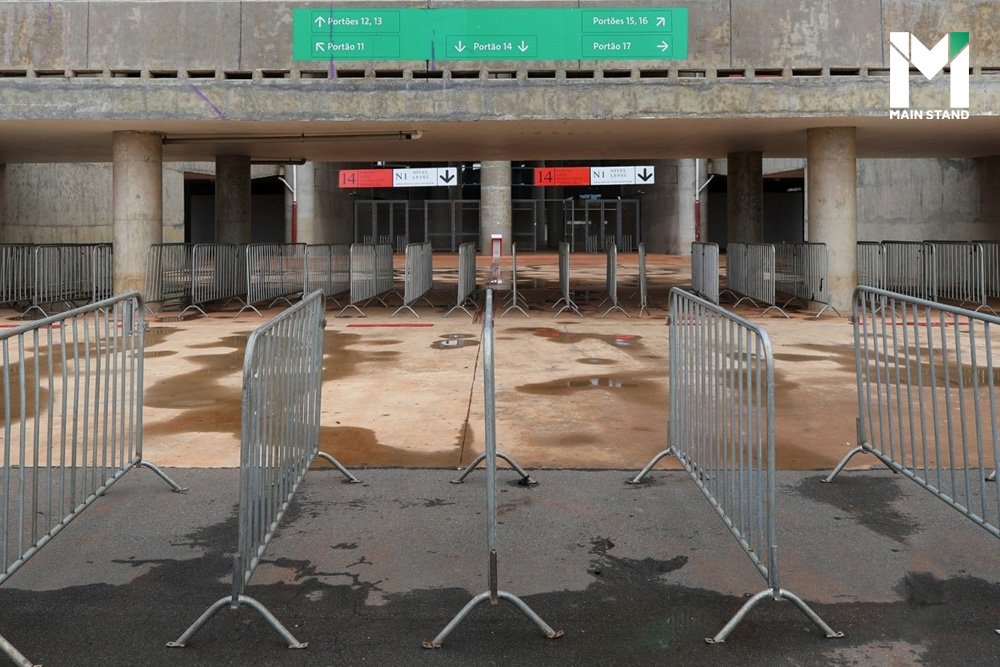
Hosting a World Cup usually requires a country to have stadiums holding at least 40,000 spectators. However, the only stadium which can hold that capacity in Thailand is Rajamangala Stadium. For this reason, huge funds are needed.
In addition to the expense of stadium construction, Thailand will need to invest in various facilities, transportation, and other infrastructure.
According to the World Economic Forum, despite the potentially significant income to the country, hosting major tournaments such as the World Cup and Olympics is simply not worth it compared to the money spent. Furthermore, most of the infrastructure can’t be used for the country’s development in other aspects in a sustainable manner. As a result, the opportunity costs become unbearable.
Hosting a tournament requires these questions to be answered: How much additional income comes from the event? To what extent will the government and private sector be required to play a role? How do the investments turn into facilities for locals? Will the country benefit in the end?
Nations that host the World Cup or the Olympic Games face overrun costs wasted infrastructure investment and diverted resources that could have gone to help those in need. If these countries ever see economic growth result from it, which is rare, prosperity usually goes to those at the top. The country rarely benefits, with public accounts having to run massive deficits long after the event concludes.
Lastly, who never has gone in dept from hosting major tournaments?
Owners of the two biggest tournaments in the world, the Federation Internationale de Football Association (FIFA) and the International Olympic Committee (IOC).
Sources:
https://nypost.com/2017/02/10/rios-big-arenas-and-even-bigger-debt-after-the-olympics/
https://www.theguardian.com/cities/2016/jul/06/40-year-hangover-1976-olympic-games-broke-montreal-canada
http://fortune.com/2016/08/10/olympics-financial-disasters/
https://www.americaninno.com/boston/lake-placid-olympic-debt-miracle-on-ice-only-part-of-1980-legacy-video/
http://www.thepostgame.com/blog/london-calling-2012/201201/olympic-cities-booms-and-busts
http://www.americasquarterly.org/Brazil-the-World-Cup-and-Olympics
https://www.telesurtv.net/english/analysis/World-Cups-and-Olympic-Games-A-Tale-of-Bad-Investments-20180608-0005.html
https://www.bnrbeurs.nl/2018/05/02/hosting-the-olympics-and-world-cup-an-economic-gamble/
http://pitjournal.unc.edu/article/assessing-long-term-economic-impacts-world-cup-mega-sport-event
https://www.triplepundit.com/2011/11/ugly-side-beautiful-game/
https://www.forbes.com/sites/andrewbrennan/2016/08/31/the-olympics-just-like-fifa-and-its-lauded-world-cup-is-a-money-racket-and-needs-reform/#638d249a68bf
https://www.weforum.org/agenda/2018/06/world-cup-football-smart-investment-russia-host/
https://psmag.com/economics/is-there-any-real-economic-benefit-to-hosting-a-world-cup
https://uasjournal.fi/tutkimus-innovaatiot/impact-of-the-summer-olympics-and-fifa-world-cup-on-micro-and-small-enterprises-in-brazil/
http://www.nbcnews.com/id/12303396/ns/business-world_business/t/germany-hopes-world-cup-will-boost-economy/#.Wy5mhC2B3BI
https://the18.com/soccer-news/who-really-profits-world-cup
https://www.theguardian.com/football/2014/jun/12/anti-world-cup-protests-brazilian-cities-sao-paulo-rio-de-janeiro






